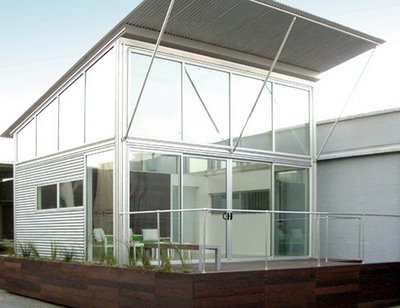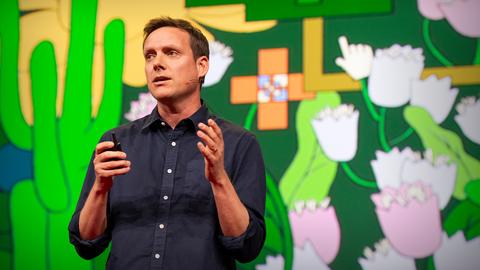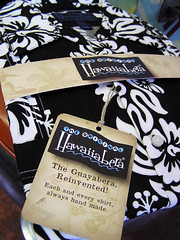
In a world of too much work and too much multitasking, the best way to beat the competition may be to do less.
Remember the story of Archimedes lolling in his bathtub? To an observer, he'd have seemed to be wasting time. While ostensibly doing nothing, however, he discovered the principle of displacement, a cornerstone of physics. Would he have reached the same insight in a quick shower?
Unlikely. And while you might say that's ancient history, don't be too sure.
Consider that for most industries, the U.S. can't hope to be the low-cost producer in a global economy. With innovation now our main competitive strength, creativity is crucial for anyone who wants to move up.
But it's really, really hard, if not impossible, for the human brain to come up with fresh new ideas when its owner is overworked, overtired, and stressed out. And in today's wonderful world of nonstop work, 40% of American adults get less than seven hours of sleep on weeknights.
"The physiological effects of tiredness are well-known. You can turn a smart person into an idiot just by overworking him," notes Peter Capelli, a professor of management at Wharton.
Still, putting in more than 50 hours a week at the office has become routine -- and that doesn't count time spent doing paperwork at home, answering e-mail at the airport, or talking on the phone in the car.
Sooner or later, companies' performance has to reflect that, Capelli says. "On the organizational level, what you get is, everyone is so focused on running flat-out to meet current goals that the whole company is unable to step back and think."
Indeed, "the notion that busyness is the essence of business can only do us long-term harm," writes consultant Tom DeMarco in a book called Slack: Getting Past Burnout, Busywork, and the Myth of Total Efficiency.
DeMarco knows the word "slack" has some not-so-hot connotations -- slacking off, slacker, slack-jawed... -- but his definition is different: the degree of freedom required to effect change.
"Companies need to respect the time it takes to do strategic thinking," he says. "Task-oriented thinking is important too, of course. But bigger thinking is slow."
The late Peter Drucker agreed. He wrote in The Effective Executive (an eerily prescient 40 years ago), "All one can think and do in a short time is to think what one already knows and to do as one has always done." Gulp.
Moreover, in Drucker's view, simply working longer and longer hours won't help. "To be effective, every knowledge worker, and especially every executive...needs to dispose of time in fairly large chunks," he wrote. "To have small dribs and drabs of time at his disposal will not be sufficient even if the total is an impressive number of hours."
Hmm, small dribs and drabs of time...and, just think, the BlackBerry hadn't been invented yet.
The multitasking trap
It's not really news that so-called multitasking can actually make people less effective at their jobs. One detailed study five years ago by psychologists at the University of Michigan demonstrated that, because the human brain needs time to shift gears between tasks, the more switching back and forth you have to do -- between, say, talking on the phone, reading e-mail, and thinking about your next meeting, all while scarfing down a sandwich at your desk -- the less proficiently you will tackle any of it (except maybe the sandwich).
The "time cost" of refocusing your attention may be only a few seconds with each switch, but the researchers found that, over time, it reduced people's total efficiency by 20% to 40%.
Seeing connections, when you have time
What scientists have only recently begun to realize is that people may do their best thinking when they are not concentrating on work at all. If you've ever had a great idea pop into your head while you were washing your car, walking your dog, or even napping, you already know what a team of Dutch psychologists revealed last month in the journal Science: The unconscious mind is a terrific solver of complex problems when the conscious mind is busy elsewhere or, perhaps better yet, not overtaxed at all.
This brings us back to Archimedes, whose "Eureka!" moment in the bath -- or, to cite another example, Isaac Newton's discovery of gravity while loafing around under an apple tree -- was a classic example of a kind of creativity known as remote association, or associative thinking. As the name implies, it's a knack for seeing connections among things that appear on the surface to be unrelated to each other.
For example, consider this sample question from the standard test for this trait, as developed by a University of Southern California psychologist named Sarnoff Mednick: "What word is related to the following other three? Cookies, sixteen, heart."
If you answered "sweet," well done.
Great innovators score off the charts in associative thinking, but most of us are capable of it to some degree -- if given enough slack, in Tom DeMarco's sense of the word.
So it could well be that, in the era of knowledge work, the most prosperous companies will turn out to be those that encourage people to build some slack into their days. (A first step, according to DeMarco, might be to cancel as many meetings as possible.)
The Google example
If you doubt it, consider Google. On February 23, the company unveiled a new product called Page Creator, which allows people who can't write HTML code to create their own web pages quickly and easily.
Within hours, this was such a smash hit that the company had to put a temporary limit on the number of Google (Research) users who can sign up for it.
Page Creator is the brainchild of an engineer named Justin Rosenstein whose relatives were constantly bugging him to build web pages for them. He came up with the elegant technology behind the product while noodling around at the office on a project unrelated to his regular job.
Google's headquarters in Mountain View, Calif., is a famously laid-back place, replete with lap pools, massage rooms, pool tables, free haute cuisine, and loads of other stress-reducing amenities like onsite dry cleaners and hair stylists.
"We want to take as much hurry and worry out of people's lives as we can, because a relaxed state of mind unleashes creativity," says Stacy Sullivan, the company's HR director. "And everybody's on flextime here, so we don't reward face time or working super-long hours. We just measure results."
In the end, what else matters? Of course, not every workplace can match Google's. But plenty of companies might do a lot worse than to emulate the thinking behind it.
Thanks to Anne Fisher at Fortune




























































